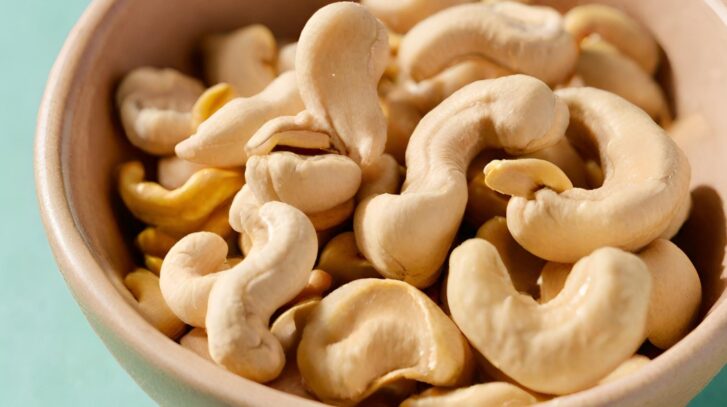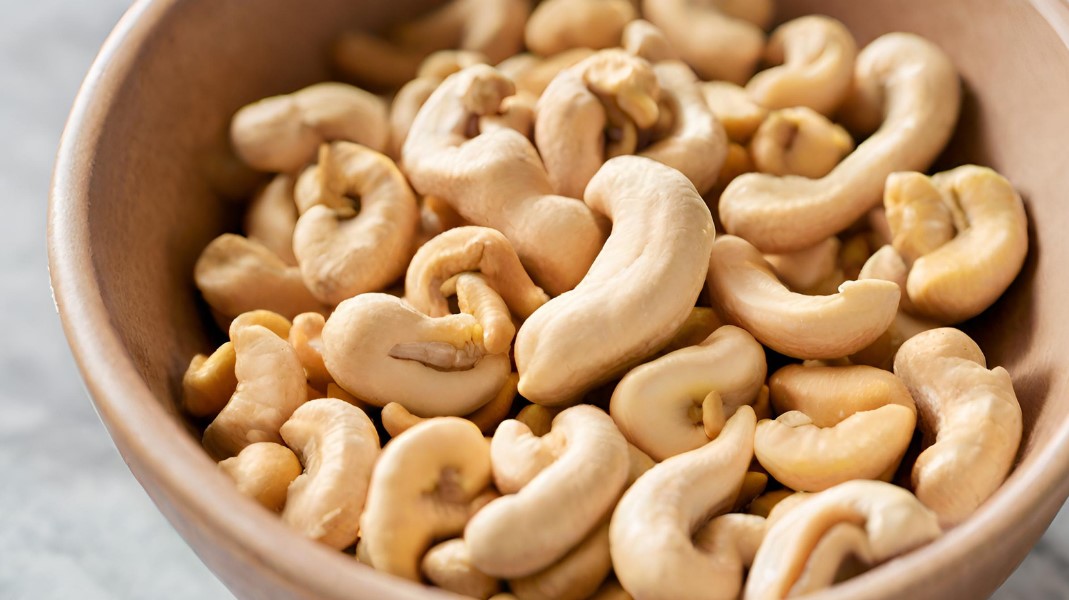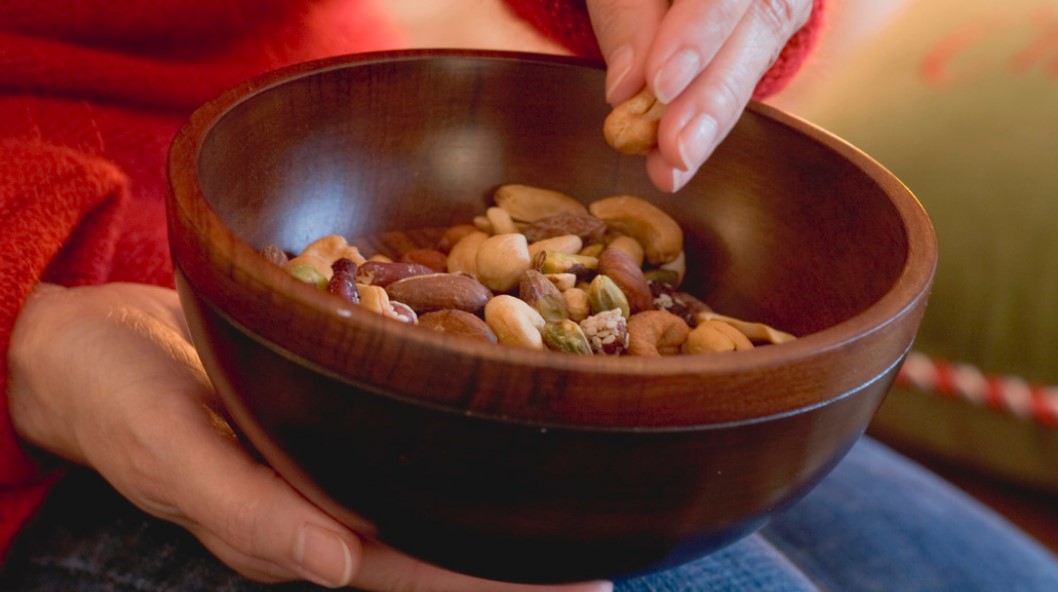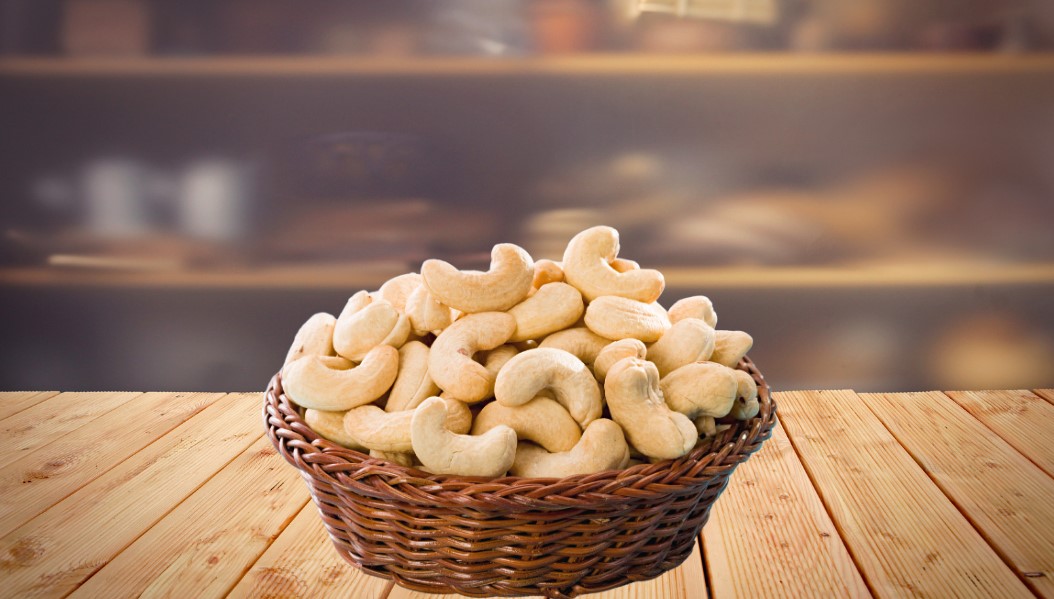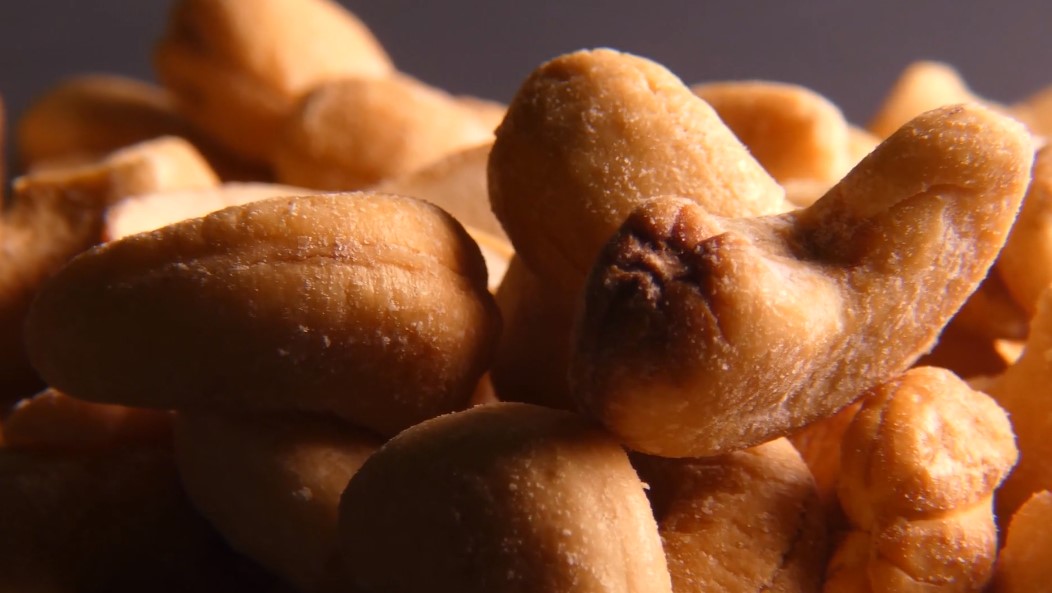Cashews are delicious and good for you, but you shouldn’t eat too many of them. They have a lot of nutrients, like vitamins and minerals, that your body needs. But if you go overboard, you might end up with some problems.
You could get a stomach ache, an allergic reaction, or something worse. Sometimes we forget that even healthy foods can be harmful if we don’t control ourselves. That’s why it’s important to eat cashews in moderation, so you can enjoy their benefits without risking your health. Be smart and careful when you snack on these nuts.
In the following sections, I will introduce you to some of the biggest issues related to overconsuming the cashews.
Key Takeaways
- Cashew nuts are usually harmless when consumed in moderation. Side effects to cashews are uncommon.
- But if you eat cashew too much or you are allergic, it can lead to bloating, constipation, inflammation, headache, while it is also not recommended to mix with certain medicine.
Bloating
When the digestive system encounters certain foods, such as cashews, which are high in fat and fiber, it can lead to an accumulation of gas. This is because these nutrients slow down the digestion process, causing the body to take longer to break down and absorb food.
As a result, gas builds up in the stomach and intestines, leading to bloating. This uncomfortable sensation is often accompanied by a visibly swollen abdomen and can cause considerable discomfort.
How Much Cashew Can Lead To Bloating?
Eating more than a small handful of cashews (about 28 grams or 1 ounce) might lead to bloating for some people. Cashews, while nutritious, contain complex compounds that the digestive system must work harder to process. The high fiber content in cashews is beneficial for the digestive tract but requires adequate water to process efficiently.
Without sufficient hydration, the fiber can cause a backlog in the intestines, leading to gas and bloating. Additionally, the rich fat content in cashews slows gastric emptying, which means the stomach takes longer to clear, further contributing to bloating.
Strategies for Prevention and Relief
To prevent bloating caused by cashews, it is advisable to consume them in moderation. A serving size of about 1 ounce (28 grams), equivalent to a small handful, is recommended. Ensuring adequate hydration by drinking plenty of water throughout the day can also help mitigate the effects of fiber on the digestive system.
Should bloating occur, simple remedies include taking a short walk to stimulate digestion or using over-the-counter anti-gas medications to relieve discomfort. Incorporating probiotics into your diet can also support digestive health and reduce bloating incidents.
Constipation
Constipation is a common digestive issue characterized by infrequent bowel movements and difficulty passing stools. It can result from various factors, including diet, hydration, and lifestyle choices.
Cashews, when consumed in large quantities without adequate water, can contribute to constipation. This is because the high fiber content in cashews absorbs water in the intestines, making stools hard and difficult to pass if not balanced with sufficient fluid intake.
How Much Cashew Can Lead To Constipation?
While cashews are a healthy snack rich in nutrients, their fiber content requires careful management. Consuming too many cashews without enough water can lead to a fiber overload, where the digestive system struggles to move the dense, dry mass through the intestines.
This can result in constipation, characterized by hard stools and discomfort during bowel movements. Consuming large quantities of cashews without adequate hydration—more than 30 to 40 nuts daily—can increase the risk of constipation, especially in individuals with existing digestive issues.
Strategies for Prevention and Management
To avoid constipation related to cashew consumption, balance is key. Limit cashew intake to a moderate amount and ensure you are drinking plenty of water to help the fiber move through the digestive system more smoothly.
If constipation occurs, remedies include increasing your water and fiber intake from other sources, such as fruits and vegetables, to help soften stools and promote regular bowel movements. Gentle exercise can also stimulate digestion. For persistent constipation, consulting a healthcare provider is recommended to explore further treatment options.
Joint Swelling
Joint swelling, or inflammation, can be exacerbated by certain foods, including cashews, in individuals with specific health conditions such as gout or arthritis.
While cashews are nutritious, they contain compounds that can affect uric acid levels in the body. An increase in uric acid can lead to inflammation and swelling in the joints, causing discomfort and reduced mobility.
How Much Cashew Can Lead To Inflammation?
For individuals with conditions that make them susceptible to joint swelling, even small amounts of cashews could potentially trigger symptoms. The exact amount that might cause an issue can vary widely, depending on the person’s overall diet, their specific health condition, and how their body metabolizes purines, which are substances found in cashews that can increase uric acid.
Prevention and Remedies
Managing joint swelling involves monitoring and possibly adjusting your intake of foods like cashews. Incorporating anti-inflammatory foods into your diet, staying hydrated, and maintaining a healthy weight can also help manage symptoms.
For those who experience joint swelling after consuming cashews, treatments may include anti-inflammatory medications, cold compresses to reduce swelling, and physical therapy exercises to maintain joint mobility. Consulting with a healthcare professional is crucial for developing a personalized management plan that considers both dietary and medical approaches to care.
Headache
Headaches, including migraines, can sometimes be triggered by certain foods, and cashews are among the potential culprits for susceptible individuals.
This is due to substances in cashews, such as tyramine, that can affect blood vessels in the brain and lead to headaches. The severity and occurrence of headaches after eating cashews can vary greatly from one person to another, influenced by individual sensitivities and overall dietary patterns.
How Much Cashew Can Lead To Headache?
There’s no universal amount of cashews that triggers headaches in everyone; it’s highly individual. People prone to food-induced headaches should pay close attention to how their bodies react to cashews.
Starting with small quantities and gradually increasing intake can help identify a personal threshold. If headaches occur, reducing or eliminating cashews from the diet may be necessary.
Prevention and Treatment
For individuals who find that cashews trigger headaches, avoidance is the simplest prevention strategy. When a headache does occur, treatments can include over-the-counter pain relievers, rest in a dark and quiet room, and hydration.
Some people may find relief with caffeine, either through beverages or in combination with pain relievers, as caffeine can help reduce blood vessel swelling.
Long-term management strategies might involve keeping a food diary to track and identify potential headache triggers and consulting with a healthcare provider for personalized advice and treatment options.
Nut Allergy
Allergic reactions to nuts, including cashews, can range from mild to life-threatening. Symptoms of a cashew allergy can include skin reactions, from pimples to rashes, digestive discomfort, respiratory issues, and in severe cases, anaphylaxis—a rapid, potentially fatal allergic reaction. Because of the severity of nut allergies, individuals with a known allergy to cashews or other nuts must avoid them entirely.
How Much Cashew Can Lead To Allergy?
For those with a cashew allergy, even minuscule amounts of the nut or cross-contamination with cashew particles can trigger an allergic reaction. The severity of the reaction can depend on the level of sensitivity and the amount of exposure.
It’s crucial for individuals with nut allergies to read ingredient labels carefully, inquire about food preparation methods when eating out, and communicate their allergies to others.
Proper Treatment is Crucial
The primary strategy for managing a nut allergy is complete avoidance of the allergen. Individuals with a known severe allergy should carry an epinephrine auto-injector (e.g., EpiPen) at all times and wear medical identification that lists their allergy.
In the event of accidental exposure, using the auto-injector immediately and seeking emergency medical care are critical steps. For less severe reactions, antihistamines may provide symptom relief, but it’s essential to follow a healthcare provider’s recommendations for treatment.
What About Drug Interactions?
Magnesium, found in cashews, can particularly affect the absorption and effectiveness of various drugs, including antibiotics and osteoporosis medications. While the nutritional benefits of cashews are significant, it’s important for individuals on medication to be aware of potential interactions.
How Much Cashew Can Lead To Issues?
The impact of cashews on medication can vary depending on the type of medication, the amount of cashews consumed, and individual health factors. Generally, moderate consumption of cashews is unlikely to cause significant interactions for most medications.
However, individuals taking medications known to interact with magnesium or other compounds in cashews should consult with their healthcare provider to determine safe consumption levels.
How to Avoid Potential Problems?
To minimize the risk of drug interactions, individuals should inform their healthcare providers about their diet, including cashew consumption. Healthcare providers can offer guidance on whether cashew intake should be adjusted or if medication timings can be altered to reduce interaction risks. In some cases, monitoring blood levels of certain medications may be recommended to ensure they remain within a therapeutic range.
Be Sure To Only Benefits From Eating Cashews
As you can see, there are some potential issues you could face. However, most of them are either related to other health problems, such as high blood sugar, or a nut allergy. On the other side, a healthy individual will hardly face any of these problems from a daily consumption. But still, the best approach is to follow recommendations from experts.
The recommendation from Dr. Jasmine Shaikh is: Try to consume no more than one ounce (28.35 grams) of medium cashew a day to reap health benefits. A single serving of cashews contains about 18 nuts.
What Are the Health Benefits?
Cashews, a nutrient-rich nut, offer a wide range of health benefits if you add a moderate amount to your daily meal plan.
Heart Health
The monounsaturated and polyunsaturated fatty acids found in cashews can help lower LDL cholesterol and triglyceride levels, reducing the risk of cardiovascular diseases. Their magnesium content also aids in regulating blood pressure.
Weight Management
Despite their high calorie content, cashews can be a part of a weight management diet when consumed in moderation. The fiber and protein in cashews help in feeling full and satisfied, potentially reducing overall calorie intake.
They can be a great combination with some Gut Health Supplements.
Bone Health
Magnesium and calcium, found in cashews, are vital for bone health. These minerals help in building and maintaining bone structure, reducing the risk of osteoporosis.
Good for the Skin and Hair
Cashews contain antioxidants and minerals that are beneficial for the skin and hair. Selenium, zinc, and iron promote a healthy complexion, protect against skin cancer, and support strong, vibrant hair.
Supports Healthy Brain Function
Cashews contain brain-boosting nutrients like copper and iron, which enhance neuroprotective functions and support cognitive abilities. The healthy fats in cashews are essential for brain health, aiding in neurotransmitter function and providing a source of energy.
FAQs
Summary
Cashews offer a blend of taste and nutrition that can enhance a healthy lifestyle when consumed in moderation. Their benefits, ranging from heart health to brain function, make them a great addition to any diet. However, it’s crucial to be mindful of portion sizes to avoid any adverse effects. By integrating cashews thoughtfully into your meals, you can enjoy their rich flavor and health advantages without overindulgence.
Related Posts:
- All Disadvantages of Drinking Lemon Water Daily -…
- Understanding, Confronting, and Overcoming This…
- Can You Take Too Much Biotin and How Much is Enough?…
- What Is Hypomania? Exploring the Bright Side -…
- How Many Valence Electrons Does Magnesium Have? How…
- How Many Neutrons Does Magnesium Have? Find Out How…

